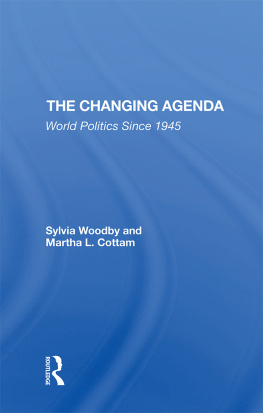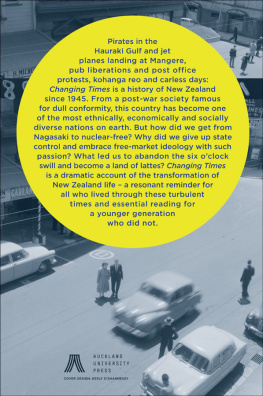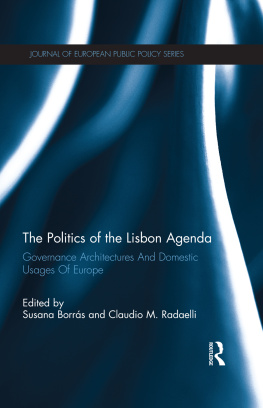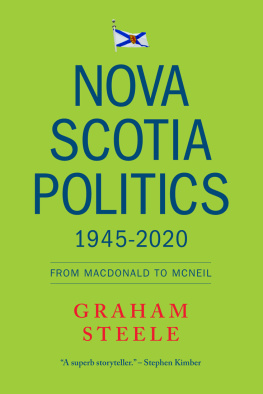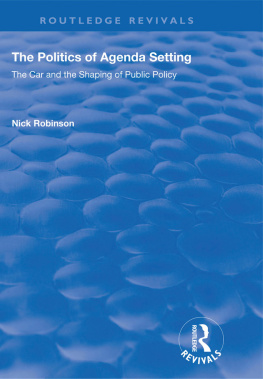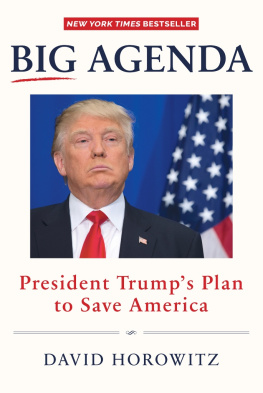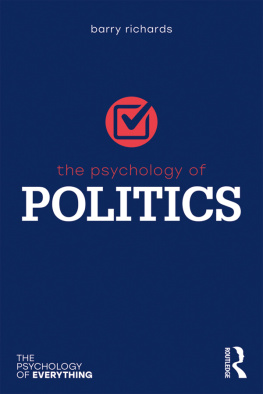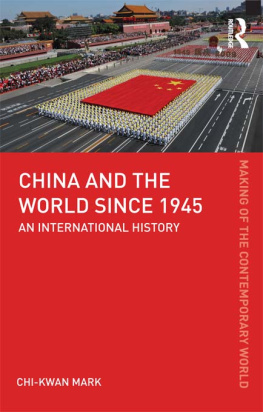THE CHANGING AGENDA
World Politics Since 1945
The Changing Agenda
World Politics Since 1945
Sylvia Woodby
Martha L. Cottam
First published 1988 by Westview Press, Inc.
Published 2019 by Routledge
52 Vanderbilt Avenue, New York, NY 10017
2 Park Square, Milton Park, Abingdon, Oxon OX14 4RN
Routledge is an imprint of the Taylor & Francis Group, an informa business
Copyright 1988 Taylor & Francis
All rights reserved. No part of this book may be reprinted or reproduced or utilised in any form or by any electronic, mechanical, or other means, now known or hereafter invented, including photocopying and recording, or in any information storage or retrieval system, without permission in writing from the publishers.
Notice:
Product or corporate names may be trademarks or registered trademarks, and are used only for identification and explanation without intent to infringe.
Library of Congress Cataloging-in-Publication Data
Woodby, Sylvia.
The changing agenda.
Bibliography: p.
Includes index.
1. World politics1945 . I. Cottam, Martha L.
II. Title.
D843.C595 1988 327'.0904 87-13565
ISBN 13: 978-0-367-29068-9 (hbk)
For Eric and Otto
This book is the product of a set of frustrations. One resulted from our experience in attempting to teach various courses in international politics to students who had little preparation and time and who had so much to learn. We wanted to write a book that would not require students to memorize forty years of history and that would present international politics to them in a way they could understand and use to interpret international issues in the future, whether or not their careers take them into an international field. This complemented another frustration we have both experienced when confronted by students' search for the answer, the solution to world conflicts, and the good guys and bad guys. Therefore, we also wanted the students to learn that simple answers are rare and that conflicts frequently derive from differing perceptions of events and different judgments about what is right. We wanted to show students how differently those who made and make international politics see issues and perhaps in this way help students understand why conflict resolution is so difficult. Third, we both have spent much of our careers focusing on the policies of the superpowers but have each had a long-term interest in the Third World. We felt strongly that the Third World has often been neglected in books on international politics and that such a situation should be corrected.
We share equally responsibility for the material in this book. As in most coauthored projects, we began with a division of labor but by the end, with innumerable drafts, blends, and rewrites, it was impossible for either of us to tell who wrote whatwhich certainly did not help the annotation process. Woodby comes before Cottam as the authorship attribution in an effort to rectify the discrimination always suffered by those whose names are at the end of the alphabet.
Good critics and supportive friends and colleagues have been very important for us and this project. We especially appreciate the support of Miriam Gilbert and E. Thomas Rowe. Our thanks to Eric Fain for the graphs, Anne Meagher for graphics and maps, and Chih-yu Shih and Susie Hiss for research assistance. Otwin Marenin, Dr. Susan Stein, Rourke O'Flaherty, Dan Papp, and Marion Leighton supplied valuable comments on the manuscript.
The persistent curiosity of our students in North America has both inspired and rewarded us over the years. Martha Cottam's students at the University of Port Harcourt, Nigeria, provided a lesson in the strength and reality of the North-South agenda that we will never forget.
We extend special thanks to Eric Fain and Carolyn Cottam, who kept us going.
Sylvia Woodby
Martha L. Cottam
Students of international relations confront an enormous and daunting task. Significant events and developments in world politics have come to involve so many actors and so many issues that mastering the subject seems impossible, and histories of world politics since 1945 easily assume unmanageable proportions. Yet detail is important: Without comprehensive knowledge of key events, the student may find theoretical treatments of international relations that offer analytical frameworks and organizing themes and concepts to be confusing.
In this book we attempt to supply such knowledge by providing an organized overview of the changing agenda of world politics. By agenda we mean those issues being addressed by world political actors that elicit significant action or attention. When we apply the concept of agenda to the study of any kind of politics, we assume that the subject matter is to some extent always in flux and that choices and judgments are made all the time about the problems, tasks, or circumstances on which action is desirable or necessary. Controversies over the proper definition and ranking of issues requiring action make up much of political life, and the list of issues under consideration at any given time will reveal much about the actors, values, and tension points in any political system. Over time, changes in the list of issues will reflect changes in political power as well as in perceptions, problems, and circumstances.
This general concept holds true for international politics as well; in fact, we believe that a focus on agenda is exceptionally useful for the study of international politics, where no central governing authority exists. Although states often collaborate and frequently agree, they all prize autonomy and claim the right to sovereigntythat is, the right to run their own affairs without interference from others and to decide for themselves what to do when conflicts occur. Thus, states have always spent much time and energy attempting to persuade other states to share their perceptions and ideas about what needs to be doneto forge agreement on what could be considered an international agenda. Much of the dialogue in world politics involves attempts to characterize events and situations in ways that attract the attention of other states, so as to justify or promote particular actions or to mobilize cooperative efforts. Frequently, these attempts concern the ways in which the actions of single states are alleged or believed to represent problems for a larger community. At any given time the international political agenda may include issues that produce conflicts about acceptable behavior for states, issues that challenge states to work together to solve common problems, or issues that raise debates about what it is that states may properly do without any interference from others.
Although there may be many times when the issues of world politics seem self-evident, agendas are set by people: An issue receives international attention only when enough policymakers from enough countries believe that it should. In any period there are competing ideas, reflecting different interests and perspectives or different standards of state behavior, about what the international political issues are and about which issues are most important to which states. Issues arise because of new events or problems, new ways of thinking, or new definitions of the relevant group of actors. New issues can also arise because of effective demands to think about issues that were previously ignored.

